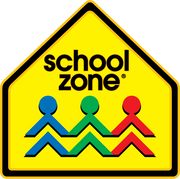Importance of math workbooks for 2nd graders
Math workbooks are more than just a learning tool; they are important in building and sharpening growing math skills in young learners. By providing structured practice, these workbooks help children understand math concepts, ensuring they comprehend and retain what they learn. According to "The Importance of Early Math," by Michaela Velarde, writing for Waterford, a national early education non-profit providing multi-subject programs, early math skills are a strong indicator of later academic success. There is even a math-reading connection!
Here are three major benefits of using math workbooks for 2nd graders:
- Improved Retention: Regular practice with workbooks helps reinforce math concepts, leading to better retention.
- Practice Makes Perfect: This long-time saying is pretty much intuitive. The more we do something, the more it becomes muscle memory. Workbooks provide ample opportunities for children to practice and master addition, subtraction, and other math skills of growing complexity.
- Boosted Confidence: Successfully completing workbooks can build a child's confidence in their math abilities.
By including math workbooks into their daily routine, parents and educators can support children's learning in a structured and enjoyable way, paving the path for academic success.
Exploring math problems for 2nd graders
Math problems for 2nd graders are designed to build a firm footing on the "next step" in mathematics while keeping learning engaging and fun. At this stage, children face a variety of math problems that challenge their thinking and problem-solving skills. Some are:
- Addition and Subtraction: These problems, using larger numbers, help children understand basic operations and develop their arithmetic skills.
- Word Problems: These encourage kids to apply their math skills to real-world scenarios, enhancing comprehension and critical thinking.
- Skip Counting by 2s, 5s, and 10s: This deepens understanding of numbers and patterns within them, helps develop mental math skills, and forms the basis for multiplication and division.
- Early Geometry: Recognizing and identifying the basic properties of two-dimensional shapes sets the stage for more complex analysis of shapes and dimensions.
By working with these concepts over and over, children not only improve their math skills but also gain confidence in their ability to tackle new challenges.
Making math more fun with a variety of tools and strategies
Making math fun can significantly enhance a child's learning experience. Here are some creative strategies to achieve that:
- Use of Visual Aids: Incorporate colorful objects or drawings to visualize addition problems, making it easier for children to understand.
- Interactive Games: Turn addition into a game with interactive workbooks or online activities that reward progress and correct answers.
- Story-Based Problems: Create stories around math problems to make them more relatable and fun for kids.
- Hands-On Activities: Use everyday items to practice concepts like skip-counting and early fractions.
By combining these methods with the use of creative, colorful workbooks, you can capture a child's attention and foster a love for math.
How to choose the right math workbooks
Choosing the right math workbooks for 2nd graders can make a big difference in your child's learning experience. Here are some tips to help you select the best:
- Match Learning Pace: Look for workbooks that align with your child's current understanding and skills. It's important to choose materials that are neither too easy nor too challenging.
- Consider Interests: Select workbooks that incorporate themes or characters your child enjoys. This can make the learning process more engaging and fun.
- Check Difficulty Level: Ensure the workbooks offer a gradual increase in difficulty to help your child build confidence and mastery over time.
- Variety of Problems: A good workbook will include a mix of problem types, such as simple sums, word problems, and puzzles to keep your child interested and challenged. School Zone's Big Math 1-2 (Spiral Bound) helps teach addition, subtraction, story problems, time, money, fractions, multiplication, and more. And the spiral-bound format means pages lay flat for ease of work and maximum concentration.
- Align with Learning Goals: Choose workbooks that support the specific math skills your child needs to develop, such as addition, subtraction, or problem-solving.
Tips for incorporating math workbooks
For parents and educators, incorporating math workbooks into daily learning routines can be both rewarding and effective. Here are some tips to make the most out of these resources:
- Set a Routine: Designate a specific time each day for workbook activities to help children develop a habit of learning.
- Make it Interactive: Use colorful pens or stickers to mark completed tasks, making the process more engaging.
- Celebrate Progress: Acknowledge and celebrate small achievements to keep children motivated and excited about learning.
- Adapt to Interests: Choose workbooks that align with your child's interests, whether it be animals, sports, or other themes.
By making workbook time enjoyable and interactive, parents and educators can foster a love for math in young learners. To reiterate: Math workbooks for 2nd graders are a fantastic way to make learning math fun and productive. They build essential math skills but also boost kids' confidence and retention.
We encourage parents and educators to explore the wide array of educational materials offered by School Zone including workbooks, flash cards, and game cards. Or subscribe to Anywhere Teacher, their online learning program for kids ages 2-8, loaded with dozens and dozens of math games, interactive worksheets, and other activities. Visit the School Zone website to discover products that can enrich your child's learning journey.











